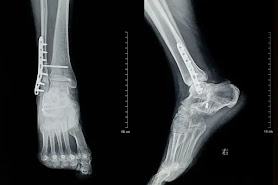ORTHOPEDIC SURGEON
An Orthopedic surgeon is a medical doctor who specializes in the diagnosis, treatment, prevention, and rehabilitation of conditions and injuries related to the musculoskeletal system. This system includes bones, joints, ligaments, tendons, muscles, and nerves. Orthopedic surgeons often treat a variety of conditions, including fractures, dislocations, torn ligaments, arthritis, spinal disorders, sports injuries, and congenital disorders.
Types of Orthopedics:-
Orthopedic care encompasses a wide range of treatments and interventions aimed at addressing issues related to the musculoskeletal system.
Here are some common types of orthopedic care:
- Non-surgical management: Many orthopedic conditions can be effectively treated without surgery. This may involve conservative approaches such as physical therapy, exercises, medications (such as anti-inflammatory drugs or pain relievers), injections (such as corticosteroids or visco supplementation for joint pain), and the use of orthotic devices (such as braces or splints) to support or immobilize injured or weakened areas.
-
Surgical interventions: When conservative treatments are insufficient or inappropriate, surgery may be recommended. Orthopedic surgeons perform a variety of surgical procedures to address conditions such as fractures, ligament tears, joint degeneration, spinal disorders, and more. Common orthopedic surgeries include joint replacements (such as hip or knee replacement), arthroscopic procedures (minimally invasive surgery using a tiny camera and specialized instruments), spine surgeries (such as discectomy or spinal fusion), and fracture repair
Treatment & Services of Orthopedics:-
Orthopedic treatment and services encompass a broad spectrum of interventions aimed at addressing conditions and injuries affecting the musculoskeletal system. Here’s a breakdown of some common
*Total knee Replacement:-
Total knee replacement is typically recommended for patients with advanced knee arthritis (osteoarthritis), rheumatoid arthritis, or other conditions that cause significant pain, stiffness, and loss of function in the knee joint.
*Foot & Ankle Surgery:-
Foot and ankle surgery encompasses a range of procedures aimed at treating various conditions affecting the bones, joints, ligaments, tendons, muscles, and nerves in the foot and ankle region.
*Sports Injury:-
Sports injuries encompass a wide range of injuries that occur during athletic activities or exercise. These injuries can affect various parts of the body, including muscles, tendons, ligaments, bones, and joints.
*Ankle Fractures:-
An ankle fracture is a break in one or more of the bones that make up the ankle joint. The ankle joint is composed of three bones: the tibia (shinbone), the fibula (smaller bone of the lower leg), and the talus (a bone in the foot).
*Arthritics Knee pain:-
Arthritis knee pain refers to discomfort and inflammation in the knee joint caused by arthritis, a condition characterized by inflammation and degeneration of the joint cartilage. Managing arthritis knee pain involves a multidisciplinary approach tailored to the individual needs and preferences of the patient.
*Ankle Pain:-
Ankle pain refers to discomfort, tenderness, or inflammation in or around the ankle joint. It can range from mild to severe and may be caused by various factors, including injuries, overuse, medical conditions, or structural abnormalities.
Benefits Of Orthopedic Surgery:-
Orthopedic surgery offers several benefits to individuals suffering from musculoskeletal issues, including injuries, congenital conditions, and degenerative diseases. Here are some key benefits:
-
Pain Relief: One of the primary reasons for undergoing orthopedic surgery is to alleviate chronic pain caused by conditions such as arthritis, fractures, and injuries. Procedures like joint replacement and spinal surgery can significantly reduce pain.
-
Improved Mobility: Orthopedic surgeries can restore or enhance mobility and range of motion. This is particularly beneficial for patients with joint problems, such as hip or knee replacements, which can help them move more freely.
-
Enhanced Quality of Life: By reducing pain and improving mobility, orthopedic surgery can greatly enhance the overall quality of life. Patients can return to their daily activities, work, and enjoy recreational activities with less discomfort.
-
Correction of Deformities: Some orthopedic surgeries are performed to correct physical deformities caused by congenital conditions, trauma, or disease. This can lead to improved physical appearance and function.
-
Improved Functionality: Surgeries like ligament repairs, tendon transfers, and joint reconstructions can restore the functionality of affected limbs or joints, allowing patients to regain normal use of their body parts.
FAQ ‘s About Orthopedic Surgeon:-Q1. What is orthopedic surgery?
A1.Orthopedic surgery treats issues related to bones, joints, ligaments, tendons, and muscles.
Q2. What conditions do orthopedic surgeons treat?
A2.They treat fractures, arthritis, sports injuries, congenital deformities, and spine disorders.
Q3. How do I know if I need orthopedic surgery?
A3.If you have persistent pain or limited mobility that doesn’t improve with non-surgical treatments, consult an orthopedic specialist.
Q4. What are the risks of orthopedic surgery?
A4.Risks can include infection, blood clots, nerve damage, and anesthesia complications.
Q5. How should I prepare for orthopedic surgery?
A5.Follow your surgeon’s instructions, which may include stopping certain medications, fasting, and arranging post-surgery transportation.
Q6. Is orthopedic surgery performed under general anesthesia?
A6.It can be performed under general, regional, or local anesthesia, depending on the procedure.
Conclusion:-
Dr. Aditya Somayaji is the foremost Orthopedic surgeon in Kondapur, known for his surgical precision, compassionate approach, and dedication to patient satisfaction. With expertise in knee replacement procedures, he offers personalized care, utilizing advanced techniques to restore mobility and improve quality of life. Patients trust Dr. Aditya for his skill, experience, and commitment to delivering optimal outcomes in knee replacement surgery.
-






